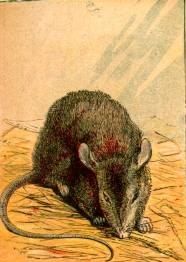Animal News
 Cleaning
up the messes we make out of Mother Nature is a delicate business, lest
we make things worse with the solution. Ships stop at many islands
around the world, inadvertently introducing rats that ate native
species, particularly their eggs. South Georgia Island in the South
Atlantic is one such habitat. Once the premiere breeding ground of
seabirds, South Georgia became overrun by rats, and the number of birds
there dropped like a stone, to 1% of the former population. Many schemes
have been tried (remember operation cat drop?), but conservationists may be making headway with new techniques.
Cleaning
up the messes we make out of Mother Nature is a delicate business, lest
we make things worse with the solution. Ships stop at many islands
around the world, inadvertently introducing rats that ate native
species, particularly their eggs. South Georgia Island in the South
Atlantic is one such habitat. Once the premiere breeding ground of
seabirds, South Georgia became overrun by rats, and the number of birds
there dropped like a stone, to 1% of the former population. Many schemes
have been tried (remember operation cat drop?), but conservationists may be making headway with new techniques.The projects try their best not to hurt the species they're supposed to protect.South Georgia Island is not the only island undergoing rat eradication projects.
For one, the rat poison, brodifacoum, is not water soluble, so it can't leach into the groundwater or poison waterways.
Some seabird scavengers could eat stricken rats and become ill, though the rat carcasses are hard to find: The poison makes the rats photophobic, or shy of light, so the rodents usually retreat to their burrows before dying.
It's possible that a few duck or other birds may ingest the poisonous pellets, but since rats eat thousands and possibly millions of chicks a year overall, poison is still the better strategy, experts say.
Read about several of them at NatGeo Newsink.

No comments:
Post a Comment